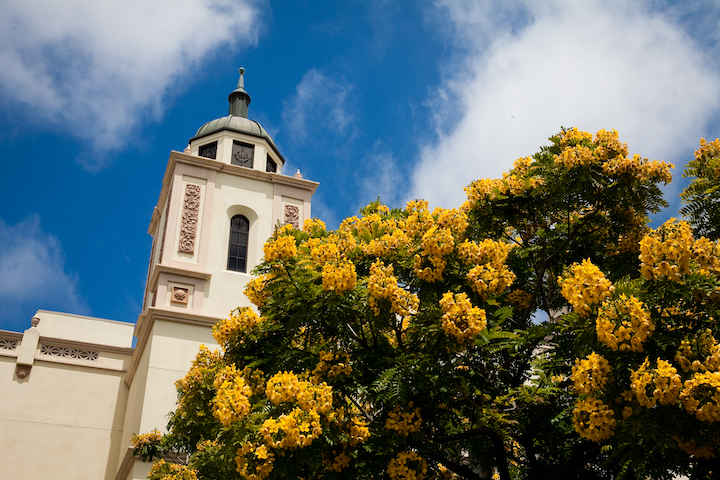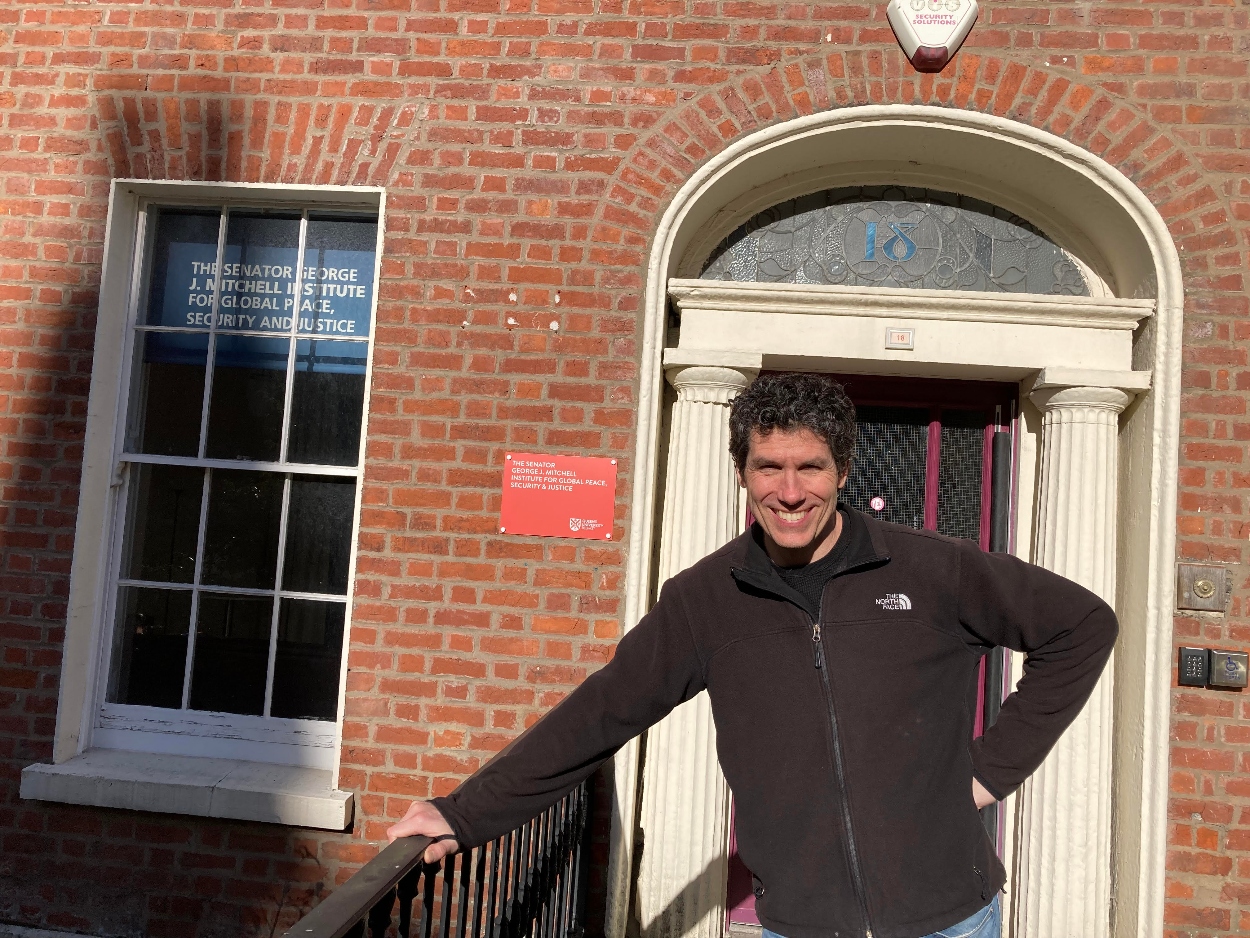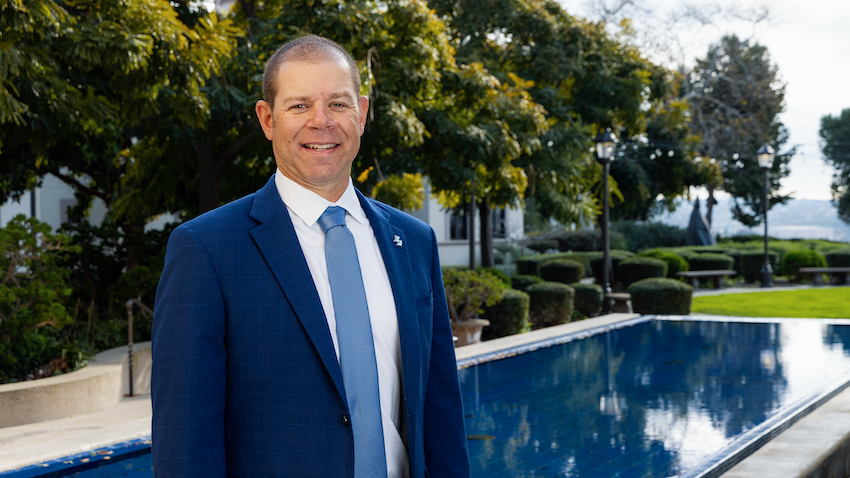USD Study: San Diego Food Pantries Lack Resources
SAN DIEGO, November 18, 2015 – While the demand for basic food needs among the poor is ever-present, many San Diego food pantries lack the resources and support to meet the demand, according to a ground-breaking study by the Caster Center for Nonprofit and Philanthropic Research (Caster Center), part of the School of Leadership and Education Sciences (SOLES) at the University of San Diego (USD).
The San Diego County Food Pantry Capacity Survey, an online assessment tool, was completed by 152 food pantries throughout the county in April 2015. The survey assessed physical space, equipment, operations, staffing, reporting, compliance, distribution and more in an effort to assess the capacity of food pantries and identify needs and gaps in the food pantry delivery system. Complete survey results can be found in “Food and Function: An Assessment of the Capacity of Food Pantry Programs in San Diego County” which is available online at sandiego.edu/nonprofit.
Key takeaways from the study include:
· 51% of the food pantries are open fewer than two days a week
· Only one-third of the food pantries participate in regional meetings, coalitions and task forces related to food insecurity
· Only 25% of the food pantries reported financial reserves for 3-6 months
· Nearly half of food pantries need more perishable food storage such as freezers and refrigerators to be able to offer more nutritious foods including proteins, produce and dairy
“Overall, San Diego food pantries are doing a good job providing food for those in our region who need it most” said Dr. Mary Jo Schumann, Director of the Caster Center. “But there are many food pantries who have to limit their services or even close their doors to the hungry because they lack adequate infrastructure, finances or funding strategies. Solutions will require partnerships among these agencies, government, philanthropic organizations and the private sector -- to not only enhance effectiveness and efficiencies -- but also to “tackle the root causes of hunger,” according to Schumann.
The online assessment tool is one of several accomplishments to date of an innovative collaborative effort, facilitated by the Caster Center, that first began in 2012 when the Kasperick Foundation convened the major food security providers, including representatives from Catholic Charities, Feeding America San Diego, The Jacobs & Cushman San Diego Food Bank, Interfaith Community Services, Jewish Family Service of San Diego, North County Community Services, The San Diego Rescue Mission, and St. Vincent de Paul/Father Joe’s Villages. Focused on food procurement, food distribution, and food pantry capacity building, the goals of the collaboration were to work collectively to identify and create solutions to ensure that resources and opportunities within the food provider community are strengthened and maximized. Additional accomplishments include an assessment of cost saving food distribution routes and warehousing locations; the formation of a Group Purchasing Organization (GPO) to leverage collective purchasing opportunities; and the development of a food pantry best practices website.
About San Diego Food Insecurity
The most recent data available from the U.S. Census Bureau reveals that more than 462,000 San Diego county residents, more than 15% of the population, live in poverty. Of that total, 19% are children. These individuals, as well as more than one million county residents that are classified as living in “economic hardship” (i.e., those with family income at 200% of the federal poverty level), are considered to be “food insecure.”
San Diego County is working toward a hunger-free community with more than 500 agencies and programs providing food, meals, and nutrition to seniors, children, and military families throughout the county.
About the Caster Center
The Caster Family Center for Nonprofit and Philanthropic Research is part of the Institute for Nonprofit Education and Research at the School of Leadership and Education Sciences at the University of San Diego. The mission of the Caster Center is to provide research, evaluation and consulting services that benchmark the nonprofit sector and build the capacity of nonprofits and philanthropies. For more information on the Caster Center, please visit http://www.sandiego.edu/soles/centers-and-research/nonprofit/
About the University of San Diego
Strengthened by the Catholic intellectual tradition, we confront humanity’s challenges by fostering peace, working for justice and leading with love. With more than 8,000 students from 75 countries and 44 states, USD is the youngest independent institution on the U.S. News & World Report list of top 100 universities in the United States. USD’s eight academic divisions include the College of Arts and Sciences, the Knauss School of Business, the Shiley-Marcos School of Engineering, the School of Law, the School of Leadership and Education Sciences, the Hahn School of Nursing and Health Science, the Joan B. Kroc School of Peace Studies, and the Division of Professional and Continuing Education. In 2021, USD was named a “Laudato Si’ University” by the Vatican with a seven-year commitment to address humanity’s urgent challenges by working together to take care of our common home.



